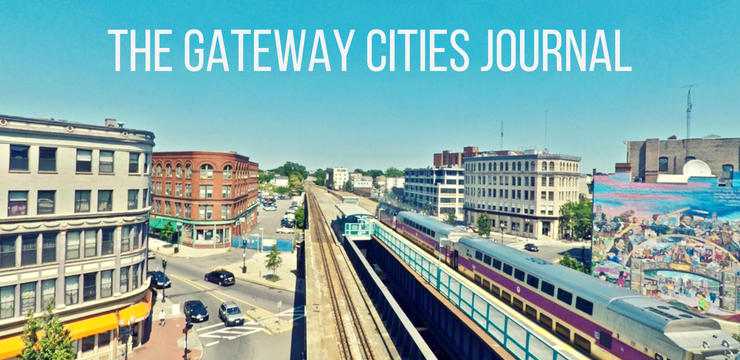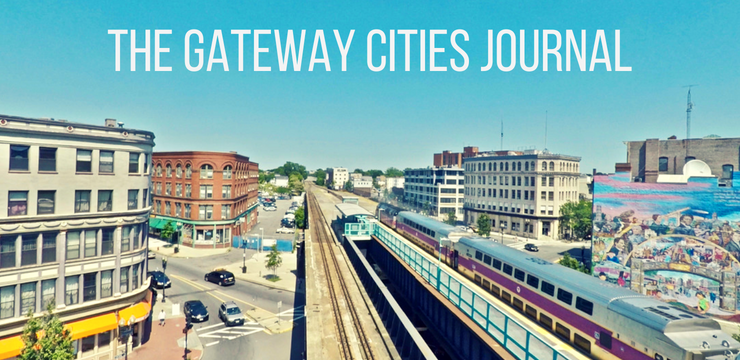 MassINC released a policy brief this week that is a “classic” in the sense that its main finding—many Gateway City residents can’t afford to ride commuter rail—is blatantly obvious. While this problem has been apparent for some time, we think now is the moment to seek a remedy. Transportation has risen to the top of the agenda on Beacon Hill and calls for transforming commuter rail into a more robust regional rail service are coming from many quarters.
MassINC released a policy brief this week that is a “classic” in the sense that its main finding—many Gateway City residents can’t afford to ride commuter rail—is blatantly obvious. While this problem has been apparent for some time, we think now is the moment to seek a remedy. Transportation has risen to the top of the agenda on Beacon Hill and calls for transforming commuter rail into a more robust regional rail service are coming from many quarters.
The administration’s Future of Transportation Commission and MassDOT’s congestion study each called attention to the Commonwealth’s unique opportunity to focus more development in Gateway Cities and increase mobility throughout the state with enhanced commuter rail service. This growth strategy can create more equitable growth, geographically as well as across our increasingly skewed income distribution; however, for this to occur, those with limited means must be able to take advantage of train service.
Concerns around gentrification are already simmering in Gateway Cities. Community-based groups are likely to stymie efforts to develop dense new housing and mixed-use projects in their cities if they don’t see a benefit for low- and moderate-income residents. If we improve the service yet maintain fares at levels that continue to exclude those with limited means, advocates for vulnerable residents will have good reason to be skeptical.
There’s also reason to be fearful that proposed improvements to rail service will never happen if we exclude low-and moderate-income residents from the business case. The math behind investing in extensive rail upgrades is unlikely to make sense if this infrastructure continues to only carry wealthier riders. The estimates MassDOT is producing for various enhanced commuter rail service scenarios, including those that prioritize Gateway Cities and other urban centers for improvements, assume a status quo fare structure that is uneconomical for a large swath of the current population. Policymakers weighing the benefits of increasing service to Gateway Cities need a true understanding of how many riders a more robust system could transport with a fare structure that also allows moderate-and low-wage workers to make use of the trains.
The business case for commuter rail service is likely to improve when we consider the full range of fiscal benefits to the state. Gateway Cities have high unemployment rates and low labor force participation rates, partly because jobs have left these older industrial communities and commuting to downtown Boston and suburban jobs centers is costly. Commuter rail service that improves access to employment will reduce reliance on public benefits and increase tax payments to the state.
MassDOT is currently conducting a study of what it would mean to offer reduced fares for low- and moderate-income residents. The board will likely consider this issue in the coming months. This is a promising opportunity and a key moment for Gateway City leaders to engage.
Transportation
Bankers & Tradesman, the Boston Business Journal, CommonWealth, Mass Live, MetroWest Daily News, the Sentinel-Enterprise, State House News, the Telegram, WBUR, and the Worcester Business Journal provide coverage of MassINC’s fare equity report. The Eagle-Tribune and Salem News weigh in with editorials in favor of lower fares.
Attleboro will build a new parking lot next to the commuter rail station, increasing parking capacity by nearly 20 percent.
Parking meters in Chelsea will now allow users to pay with their smartphones.
On the Codcast, Commonwealth talks up Bus Rapid Transit as a tool for cities around the state.
The Baker administration looks to lease electric trains from Amtrak to provide faster service to Providence.
A newly created bike path connects Taunton to the surrounding area.
The Valley Flyer, a train connecting Greenfield, Northampton, Holyoke, and Springfield, with connections to New York City via New Haven, launches service.
Douglas McGarrah of Foley Hoag, saying incremental improvements to an out-of-date transportation system don’t cut it, offers up a plan with heavy commuter rail improvements to address the Massachusetts transportation crisis.
Our Gateways podcast explores the promise of TCI.
Housing & Economic Development
A zoning change at the property of Our Lady of Sorrows in Brockton sparks a battle over where affordable housing belongs in a city that’s fighting to attract new development.
The Chelsea Planning Board endorses a proposal for inclusionary zoning.
Haverhill is well on its way to having its first marijuana shop open by the end of year.
Lynn cuts the ribbon on a new 24-unit condominium project.
New Bedford has tentatively reached host community agreements with three applicants seeking recreational dispensary licenses; Tree Beard Inc.,Southcoast Apothecary, LLC, andMetro Harvest Inc.
A New Bedford building that was once a textile manufacturing facility known as Satkin Mills, and was also considered as a possible site for a casino, is now set to become a self-storage facility.
The New York Times casts a shadow on Opportunity Zones.
Higher than expected bids on a planned park in Pittsfield stall the project.
Tariffs take their toll on small businesses in Salem.
With bids coming in for the state’s second offshore wind procurement, Mayflower Wind promises the lowest price yet, plus extensive investment to develop a domestic supply chain for the industry on the South Coast.
Housing Policy Debate publishes a special issue examining where we stand 50 years after the passage of the Fair Housing Act.
Miriam Axel-Lute takes a behind the scenes look at NCRC’s recent gentrification report.
Education
Attleboro will break ground on a new high school in October.
A new partnership between Curry College and Massasoit Community College will allow students to work towards their bachelor’s in Nursing while at Massasoit’s Brockton Campus.
With a large amount of teachers leaving Haverhill, union leaders find themselves scrambling to raise morale.
Episode 29 of Gateways looks at how student leaders changed the culture at a Lynn charter.
Communities & People
The Big E returns to Springfield.

